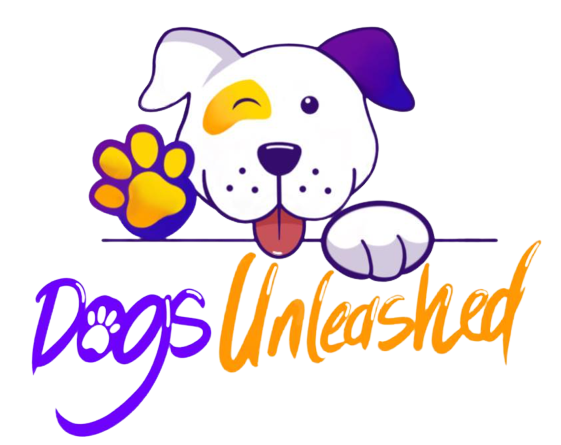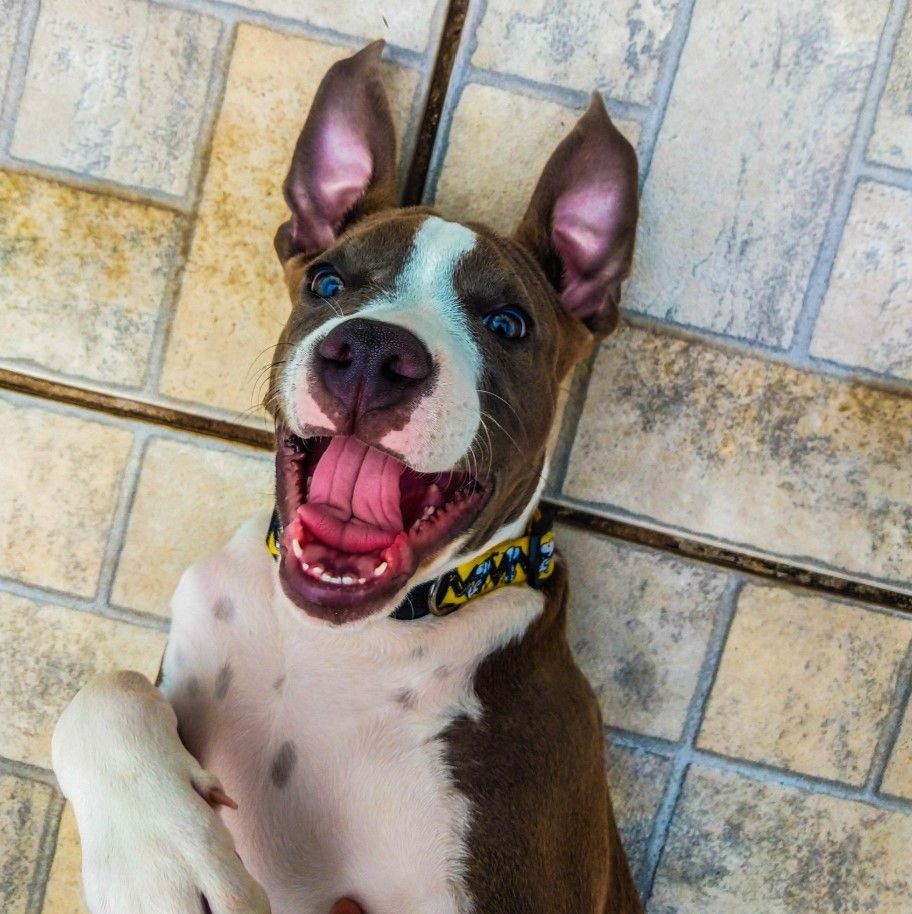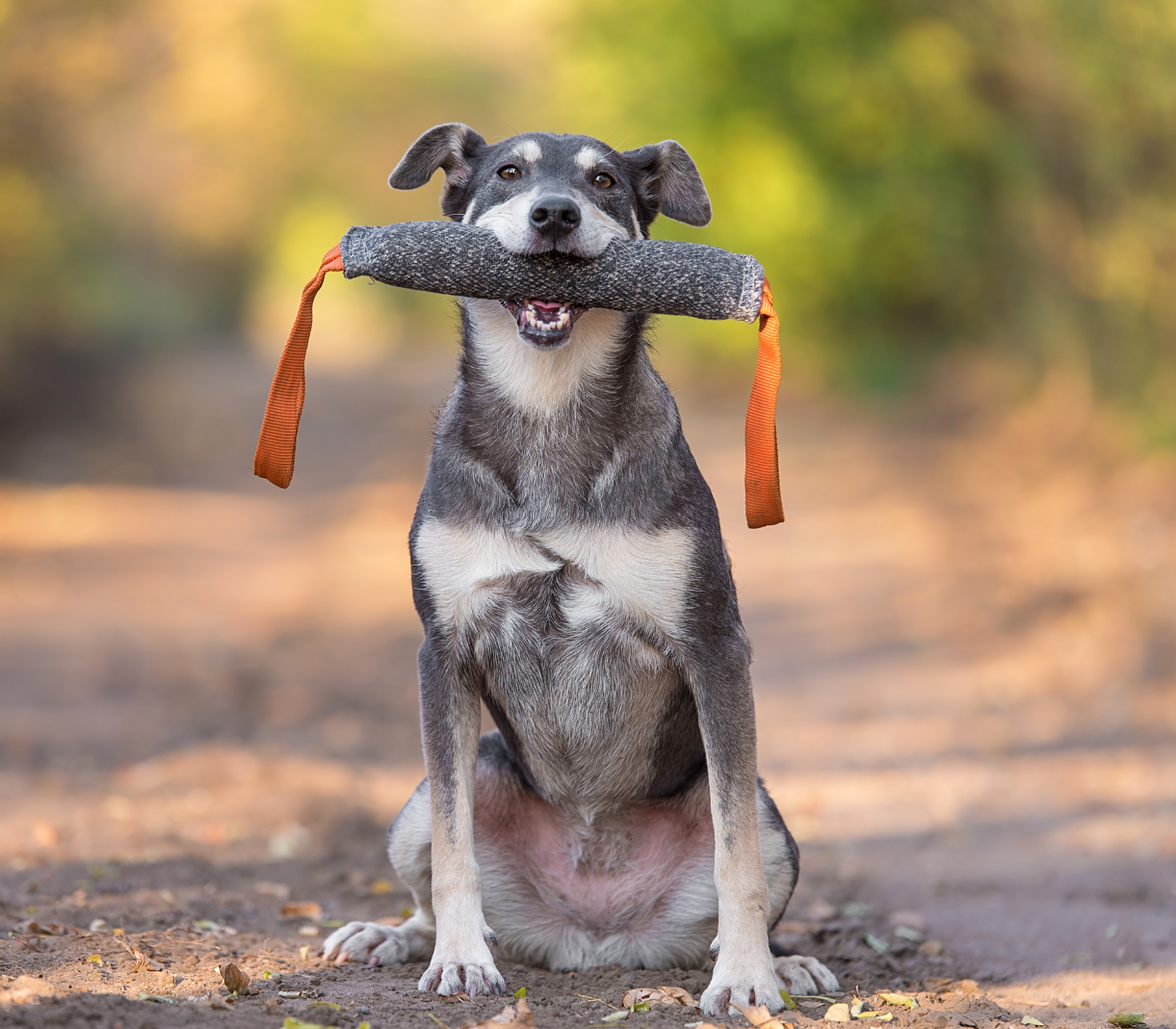Why Do Dogs Eat Grass?
Why Do Dogs Eat Grass?
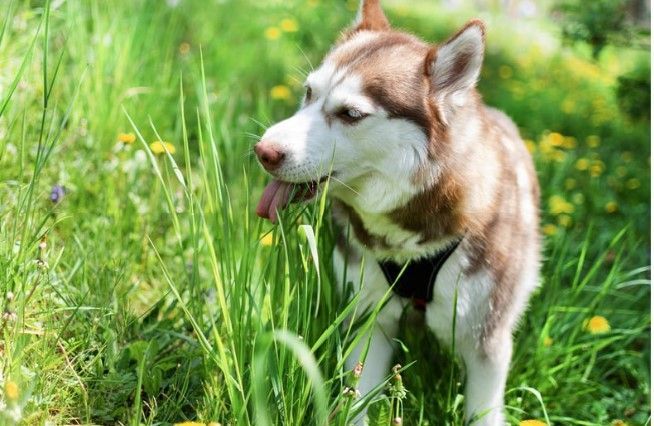
If you’ve ever caught your dog munching on grass during a walk or in the backyard, you’re not alone. Many dog owners wonder why their furry friends seem to enjoy grazing like a cow. Is it a sign of illness? A dietary deficiency? Or just a quirky habit? In this blog, we’ll explore the possible reasons why dogs eat grass and whether you should be concerned.
1. It's Instinctual
Dogs are descendants of wild canines, who often consumed plant material as part of their diet. In the wild, wolves and other relatives of dogs would eat the stomach contents of herbivore prey, which often contained grass and other vegetation. Some experts believe that eating grass is simply a leftover instinct from their ancestors.
2. It Aids Digestion
Grass contains fiber, which can help with digestion. If your dog is feeling a little constipated, eating grass might be their way of trying to relieve the issue. Some dogs might instinctively turn to grass when they have an upset stomach or need help with bowel movements.
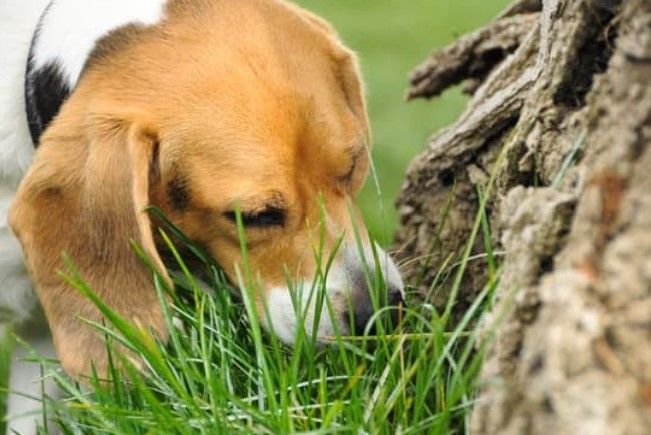
3. To Induce Vomiting
One of the most well-known theories is that dogs eat grass to make themselves vomit when they are feeling unwell. While not all dogs vomit after eating grass, some do, and it may be a way for them to relieve stomach discomfort. However, research suggests that only a small percentage of dogs vomit after eating grass, meaning this is not always the primary reason.
4. They Like the Taste & Texture
Some dogs simply enjoy the taste and texture of fresh grass. It may be appealing to them, especially when it's soft and slightly sweet in the morning or after rain. If your dog is repeatedly eating grass but shows no signs of illness, it could just be a preference rather than a problem.
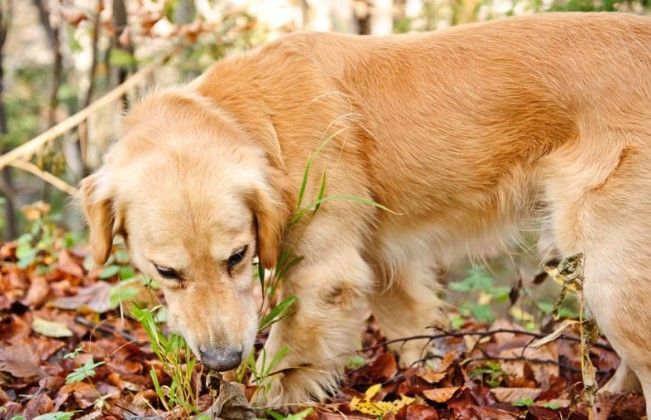
5. They're Bored or Seeking Attention
Dogs sometimes eat grass out of boredom, particularly if they don’t have enough mental or physical stimulation. If your dog is left outside for long periods or doesn’t have enough activities to engage in, they might start nibbling on grass as a way to pass the time or even get your attention.
6. They Might Have a Nutritional Deficiency
Some theories suggest that dogs may eat grass due to a deficiency in their diet, particularly in fiber or certain minerals. If you suspect this, consider evaluating your dog’s food to ensure they are getting a well-balanced diet. High-quality dog food with enough fiber and nutrients should meet their needs without the need for grass-eating.
7. Stress or Anxiety
Some dogs use grass-eating as a coping mechanism when they feel stressed or anxious. Just like humans might bite their nails or pace when nervous, some dogs chew on grass to self-soothe. If your dog eats grass during stressful situations, such as thunderstorms or being left alone, anxiety may be the cause.
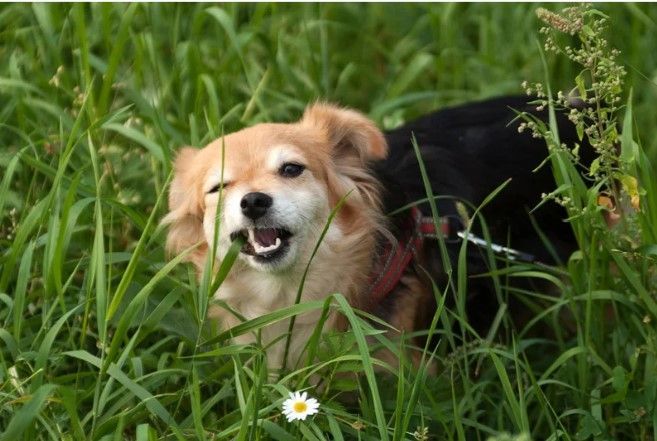
Should You Be Concerned?
In most cases, grass-eating is normal and not harmful to dogs. However, there are some precautions you should take:
- Avoid Chemically Treated Grass – If your lawn or a public park has been treated with pesticides or herbicides, consuming grass from these areas could be dangerous for your dog.
- Watch for Excessive Vomiting – If your dog eats grass frequently and vomits often, it could indicate an underlying issue that needs veterinary attention.
- Monitor for Other Symptoms – If grass-eating is accompanied by diarrhea, lethargy, or a loss of appetite, consult your vet to rule out any medical conditions.
How To Stop Grass Eating Behaviours
If you want to discourage your dog from eating grass, try these solutions:
- Ensure a Balanced Diet – Make sure your dog’s food contains enough fiber and essential nutrients.
- Provide Mental Stimulation – Engage your dog with toys, puzzle feeders, and interactive playtime to prevent boredom.
- Increase Physical Activity – Regular exercise and walks can help reduce stress and boredom-related behaviors.
- Address Anxiety Issues – If anxiety is the cause, consider calming techniques such as enrichment activities, training, or even natural calming aids like lavender-infused collars.
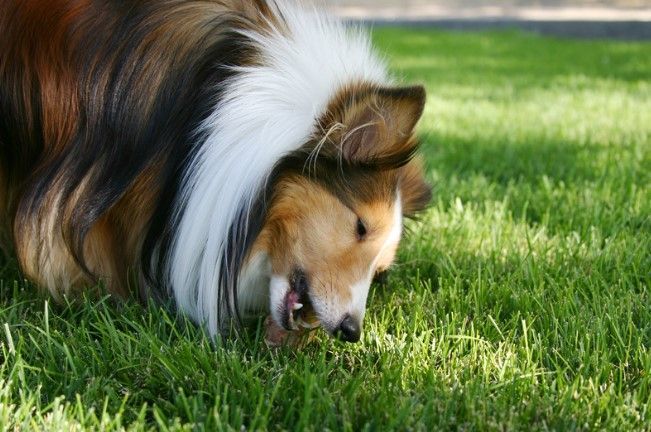
Final Thoughts
Grass-eating is a common behavior in dogs and is usually nothing to worry about. Whether it’s due to instinct, taste, digestion, or boredom, most dogs will nibble on grass at some point. However, if it becomes excessive or is accompanied by other health concerns, it’s best to consult your veterinarian. As long as your dog is happy and healthy, a little grass-snacking is just another quirky canine trait!
